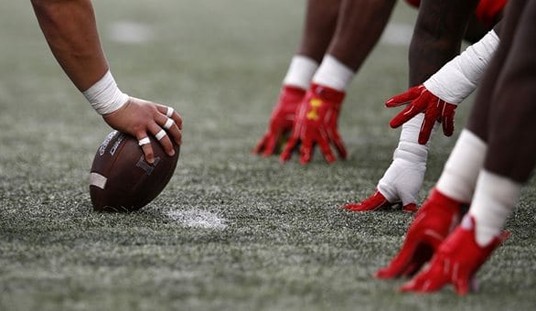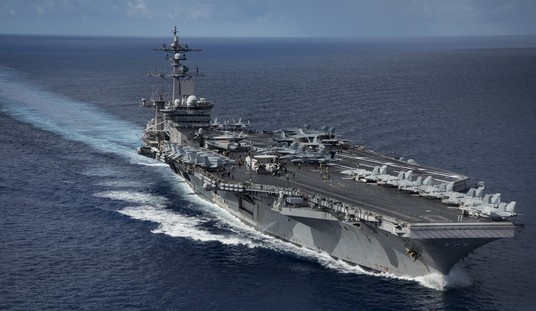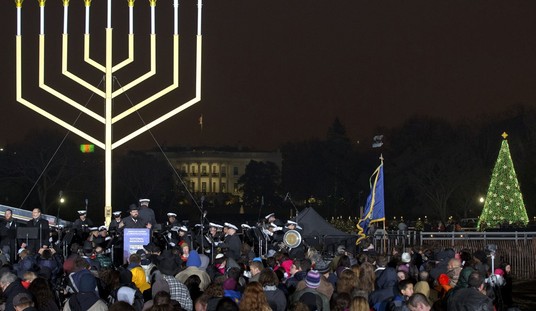In a lightning campaign lasting a week, the Ba'athist regime of Bashar al-Assad was routed, al-Assad exiled to Moscow, Russian forces expelled from the country, and a new government installed, bringing the thirteen-year Syrian civil war to a surprising denouement. The fact that the new government is led by Hay'at Tahrir al-Sham (HTS), a group with roots in al-Qaeda and its Syrian spinoff, the al-Nusra Front, gave pause to many.
The al-Nusra Front was led by a Syrian jihadi with the nom de guerre of Abu Mohammad al-Julani; his real name is Ahmed Hussein al-Sharaa. Al-Julani traveled to Iraq in 2003 to fight US troops. He was captured by US forces in 2006. From 2006 until his release by Iraqi authorities in 2011, he was a prisoner of war and seems to have moved from the suicide vest guys to the political class during that imprisonment. When he was released, he was given the task of ginning up an al-Qaeda subsidiary in Syria, which became the al-Nusra front. At some point, ISIS attempted a hostile takeover, and al-Nusra went to war with them. He broke from al-Qaeda to go independent, allied briefly with the Russians during the latter Obama years, and finally came under Turkish patronage around 2017.
HTS emerged in 2017 through a series of mergers between Syrian factions. Al-Julani became the de facto battlefield commander and consolidated his position as he purged jihadist elements from HTS. When its founder decided to retire, al-Julani became the leader. By this time, HTS had become one of the leading opposition groups, and al-Julani found himself bombed by his former buddies, the Russians.
The predictions of chaos and bloodbath have not materialized; in fact, al-Julani has shown much more interest in stabilizing Syria and building a nation than he has in fomenting jihad or fighting Israel. Let's just take a brief look at what has happened in Syria since al-Bashar caught the first thing smoking for Moscow.
RELATED:
Assad Loyalists and Russians in Headlong Retreat After Surprise Rebel Offensive on Aleppo – RedState
Damascus Under Siege; Iranian Forces Flee Syria and Tell Bashar al-Assad to Cut a Deal – RedState
Trump, Netanyahu React to Collapse of Assad Regime in Syria – RedState
Joe Biden's Remarks on Syria Were Peak Biden: Dishonest and Delusional – RedState
Religious Pluralism Exists
Russian & Iranian propaganda said that if the Syrian rebels were victorious, the Christians would be slaughtered. Many voices in the US parroted those claims. To be sure, HTS presents us with major challenges, but let admit that we consumed hostile propaganda mindlessly. https://t.co/LOvcGU8ktm
— Mike (@Doranimated) December 14, 2024
🚨 BREAKING:
— 𝗡𝗶𝗼𝗵 𝗕𝗲𝗿𝗴 ♛ ✡︎ (@NiohBerg) January 2, 2025
The new Syrian regime has reportedly told the last remaining Jews in the country that they will restore the destroyed Jobar Synagogue as well as the Jewish community itself.
Wow. pic.twitter.com/Gpfq1ZC4ym
Reconstruction is Happening
Türkiye will assist the new Syrian government in restoring railway lines to Damascus, thus reconnecting the two countries by rail and reviving parts of the historic Hejaz Railway.
— Clash Report (@clashreport) December 24, 2024
Source: Middle East Eye pic.twitter.com/ZH0XbvFB1b
Saudi humanitarian aid to Syria. Great charitable help. Thanks Saudi Arabia. #SaudiArabia #Syria #Islam #Muslims pic.twitter.com/O8LjoQYqtn
— Ahmed Hassan Arwo (@samotalis) January 6, 2025
Saudi trucks loaded with cement and steel cross the border into Syria, delivering aid and tools for reconstruction. pic.twitter.com/4rzI6mJaxD
— Clash Report (@clashreport) December 30, 2024
Government Economic Controls are Being Dismantled
Jolani wrote a 50 page (sort of) dissertation when he was in Iraq about the diversity of Syria (for AQ). He hinted at free market economy in Idlib. So this adopting of “Free Market Economics” model should not be a surprise. https://t.co/EL0QH6iFdE pic.twitter.com/tzo2tNFq4R
— Omar Abbas Hyat | ഒമർ അബ്ബാസ് (@OmarAbbasHyat) December 11, 2024
Women are not Officially Oppressed
Maysaa Sabrine appointed interim head of the Syrian Central Bank, becoming the first woman in the role. pic.twitter.com/Svbyvy5JpN
— Clash Report (@clashreport) December 30, 2024
HTS is Disbanding, and a Single National Army is Forming
Syrian leader Ahmad al-Sharaa:
— Clash Report (@clashreport) December 29, 2024
We will announce the dissolution of Hayat Tahrir al-Sham at the National Dialogue Conference. pic.twitter.com/r09Hfjv3YR
BREAKING — New Syrian Ministry of Defense plans to include Kurdish forces into its ranks, de-facto Syrian leader Ahmed al-Sharaa tells Al Arabiya News.
— Ragıp Soylu (@ragipsoylu) December 29, 2024
This was quick. A deal is reached to merge all armed factions under the new Syrian ministry of defense.
— Hassan I. Hassan (@hxhassan) December 24, 2024
Hard to overstate how this would’ve been *impossible* under international supervision or any scenario in 2012-2016.
Many things are happening smoothly coz this is organic. pic.twitter.com/UTIKxkPNsk
#HTS-led coalition announces a 100% amnesty for all #Syria soldiers, conscripts & reservists.
— Charles Lister (@Charles_Lister) December 9, 2024
They have also declared all borders with #Turkey, #Lebanon, #Jordan & #Iraq to be open for refugee returns.
Quite extraordinary steps.
No War With Israel
🚨 NEW:
— 𝗡𝗶𝗼𝗵 𝗕𝗲𝗿𝗴 ♛ ✡︎ (@NiohBerg) December 13, 2024
HTS has apparently told all "Palestinians" in Syria to hand in their weapons, close training camps, and dismantle their military wings.
Source: Al-Akhbar pic.twitter.com/tCpzBRT2OP
Al-Julani states that HTS' takeover of Syria has averted a major regional war in which Iranians and Iraqis would have fought against an Israeli advance in Syria. He further says it prevented Iranian attacks on US bases in the Gulf and "secured the security of the Gulf for the… pic.twitter.com/rjE5E6gkie
— In Context (@incontextmedia) January 2, 2025
"Why is Jolani not doing the typical mentally retarded arab LARP regarding Gaza, like the clowns before him did".
— Justin Case (@justincbzz) January 2, 2025
Because he's being honest and cares about his country, so he will do absolutely nothing regarding Palestine. https://t.co/jIn1GESgvg
Jolani should be commended on closing Hezbollah's Captagon supply line. Hezbollah is so desperate about it that they're now fighting the new Syrian army. https://t.co/p5LLu0dmP5
— Carlos Abadi (@NewSamawal) January 3, 2025
Distance from Iran
In this video, Ahmad al-Sharaa switches to colloquial Syrian dialect to ridicule Iranian-backed militias coming to Syria to take revenge for the killing of individuals 14 centuries ago.
— Hassan I. Hassan (@hxhassan) December 22, 2024
“What’s this got to do with us today?”
Jumblat nods in key momentspic.twitter.com/RbNs2lBn9E
Major Diplomatic Offensive
Saudi Arabia’s Foreign Minister Prince Faisal bin Farhan receives Syrian counterpart Asaad Hassan al-Shibani in Riyadh.#SaudiArabia #Syria
— Al Arabiya English (@AlArabiya_Eng) January 2, 2025
Read more: https://t.co/XPM7sENScr pic.twitter.com/JPgrzmAagi
#PHOTOS
— Aamaj News English (@aamajnews_EN) January 6, 2025
Sheikh Abdullah bin Zayed Al Nahyan, UAE Deputy Prime Minister and Minister of Foreign Affairs, today (Jan 6) met with Asaad al-Shibani, Minister of Foreign Affairs in the Syrian Transitional Government.#aamajnews pic.twitter.com/tLUVYkwqNm
One month after the fall of the Syrian ruler, Foreign Minister @ABaerbock and her French counterpart @jnbarrot visit #Damascus. Both want to renew relations between #Syria and the #EU - but set conditions.#NewsDE pic.twitter.com/FWpi1kM0Nk
— All about Germany | deutschland.de (@en_germany) January 3, 2025
What It Means
While it is much too early to tell what will happen in Syria, the initial signs are encouraging. Unlike nearly any other Arab civil war, reconciliation is given a priority over vengeance. An effort is being made to bring all parts of Syrian society together. While there is no doubt it will be a distinctly Islamic society, al-Julani seems to understand that Syria has enough religious and ethnic diversity that the "one size fits all" model we see in most of the Islamic world will not work. The Russians have abandoned their naval and airbase, removing the Kremlin's meddling in a delicate situation.
In his Farewell Address, Washington left us with this warning.
In the execution of such a plan nothing is more essential than that permanent, inveterate antipathies against particular nations and passionate attachments for others should be excluded, and that in place of them just and amicable feelings toward all should be cultivated. The nation which indulges toward another an habitual hatred or an habitual fondness is in some degree a slave. It is a slave to its animosity or to its affection, either of which is sufficient to lead it astray from its duty and its interest. Antipathy in one nation against another disposes each more readily to offer insult and injury, to lay hold of slight causes of umbrage, and to be haughty and in tractable when accidental or trifling occasions of dispute occur.
Hence frequent collisions, obstinate, envenomed, and bloody contests. The nation prompted by ill will and resentment sometimes impels to war the government contrary to the best calculations of policy. The government sometimes participates in the national propensity, and adopts through passion what reason would reject. At other times it makes the animosity of the nation subservient to projects of hostility, instigated by pride, ambition, and other sinister and pernicious motives. The peace often, sometimes perhaps the liberty, of nations has been the victim.
So, likewise, a passionate attachment of one nation for another produces a variety of evils. Sympathy for the favorite nation, facilitating the illusion of an imaginary common interest in cases where no real common interest exists, and infusing into one the enmities of the other, betrays the former into a participation in the quarrels and wars of the latter without adequate inducement or justification. It leads also to concessions to the favorite nation of privileges denied to others, which is apt doubly to injure the nation making the concessions by unnecessarily parting with what ought to have been retained, and by exciting jealousy, ill will, and a disposition to retaliate in the parties from whom equal privileges are withheld; and it gives to ambitious, corrupted, or deluded citizens (who devote themselves to the favorite nation) facility to betray or sacrifice the interests of their own country without odium, sometimes even with popularity, gilding with the appearances of a virtuous sense of obligation, a commendable deference for public opinion, or a laudable zeal for public good the base or foolish compliances of ambition, corruption, or infatuation.
Lord Palmerston treats the same subject in a much pithier quote, “We have no eternal allies, and we have no perpetual enemies. Our interests are eternal and perpetual, and those interests it is our duty to follow.”
I fear that many on the right have fallen into the trap of seeing American and Muslim relations through the lens of 9/11, and they are willing to see the change of government in Syria as the creation of yet another terrorist breeding ground. Indeed, on social media, some of the accounts most adamantly against US support for Ukraine and so-called "forever wars" by the "neocons" are also in favor of doing nothing to influence the outcome in Syria because of 9/11 and the 20 years of war in Iraq and Afghanistan that they decry.
The initial moves of al-Julani seem to be focused on keeping much of the same multicultural tolerance of the Assad regime without, so far as we can see right now, the terror and repression. Whether al-Julani can ride that particular tiger remains to be seen, but this does seem to be a brief opening where American "soft power" could go a long way toward achieving regional stability. At the least, we should be able to let Syria take the lead in eradicating ISIS and return American troops home; see Yikes: Pentagon Spox Makes Shocking Announcement - 'Recently Learned' There Are More US Troops in Syria – RedState. Labeling al-Julani as al-Qaeda or pro-ISIS is somewhere between nonsense and dishonesty. Al-Julani's service with the Iraqi insurgency was not unusual for young men of that place and time. The fact is that when given the opportunity to break with al-Qaeda, he did. And he fought ISIS even when it got him nothing of value.
If we ignore Washington's words and treat al-Julani reflexively as an enemy, we risk repeating the same mistake we made when dealing with Ho Chi Minh. We rejected his pleas to achieve Vietnamese independence, and he went elsewhere for help. We owe it to ourselves to take the win we're being offered. Should al-Julani's actions reveal something darker, we can always go back to hostilities knowing that we at least gave our best efforts to create a stable Syria, probably under Turkish influence, that is no longer a threat to Israel or a semi-client state of Iran.
There is still a lot of work to do. The State Department lifted a $10 million bounty on Al-Julani, but his HTS group is still under extensive sanctions. Likewise, Syria's banking sector is under sanctions and will probably need some sort of international oversight to bring it back into the global financial network.
Actually, no. It would be reckless. And not for reasons people might think. You can't plug dirty banks into the global financial system, for a billion reasons. At the practical level, it blows a hole in Iran sanctions by giving them a way to access the outside world. At the… https://t.co/FTRWaCiVXQ
— Tony Badran (@AcrossTheBay) January 5, 2025
There are reports that some US humanitarian aid is making its way to Syria.
NEW: U.S. to ease aid restrictions for Syria in limited show of support for new government
— Clash Report (@clashreport) January 6, 2025
The U.S. is easing some aid restrictions for Syria in a limited effort to support the country's new government, led by a coalition of opposition groups. This move allows humanitarian… pic.twitter.com/QFPK84B2Qf
I think the incoming Trump administration is much better suited in talent and philosophy to make the most of Syria's new government than the collection of nitwits, lackwits, midwits, and f***wits that is Biden's foreign and defense policy operations. If they are successful, that could be a multi-generational game-changer in the region.














Join the conversation as a VIP Member